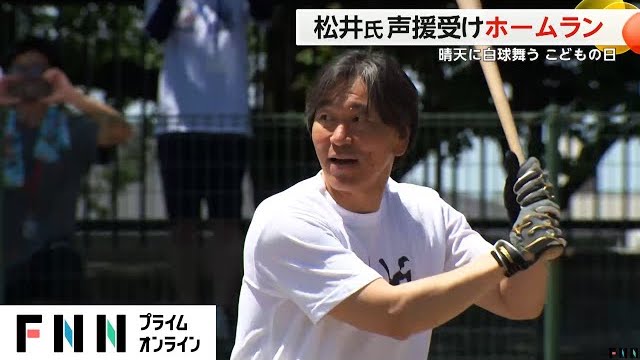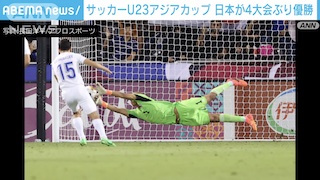Apr 12 (News On Japan) - Don't play poker yet, but thinking about starting? Then be sure to read this material, which will help you better understand the essence of the game and build a winning strategy.
Attention! This material is for informational purposes only. The purpose of this article is not directly or indirectly to interest and encourage readers to participate in gambling. Potential players themselves are responsible for all the risks and problems that may arise. It is worth saying at once that in poker there is no strategy that would 100% guarantee success, because poker is a very complex and multifaceted game. All the best poker players have spent years of their lives studying and improving their game. Becoming the best at poker means constantly improving, as the game itself is constantly evolving. Our 10 most important recommendations will help beginners not to "drain" all the money at the starting stage, as well as to understand and learn the basics of the profitable game. For those looking to practice without risk, the Richard casino no deposit bonus offers a great opportunity to play real games without the initial investment, allowing you to apply these principles effectively as you learn.
1. Play fewer hands
Many beginners try to play as many hands as possible for some reason. This is fundamentally the wrong approach. If you stick to this tactic, you will very quickly lose all the chips you have. Take some time to watch videos of professionals playing poker. You will soon realise that they are not involved in every hand, but enter the game mostly with good cards.
For beginners, it is extremely important not to get involved in every controversial situation. If you want to win, you should only do so if your hand has a prospect. It's better to have fewer hands, but a better game. And if you play every hand, your opponents will immediately recognise you as a beginner and will use it for their own selfish purposes.
Therefore, we advise you to:
- Clearly know which pocket cards you will enter the game with, and which ones you will immediately send to pass. Already in the first round of bidding - preflop - you need to make the right decision and not to risk your money unnecessarily. This is where the charts of starting hands, which can be found freely available on the Internet, can be of great help.
- You also need to understand which pocket cards have a good chance to strengthen on one of the following streets. This includes both medium and strong pocket pairs, as well as one-suit connectors, etc. Beginners are advised to be as aggressive as possible preflop with these cards. Try to knock as many opponents out of the game as possible: raise constantly, respond to a Raise with a 3-bet, etc. Your goal is to make your opponents discard their cards.
2. Try to play against weaker players
There is a common belief that you can only learn to play poker well by playing against strong poker players. This is correct, but how do you get into a game with professionals who are almost all sitting at high limits? Where do you get that kind of money?
For starters, you will have to play at micro-limits. There are a lot of beginners and inexperienced players there, so that's where you can take the first steps in building a bankroll to climb the limits. Look for the tables where the weakest players are sitting and get into the game. First you build up your bankroll, then you move up the limits - it's as simple as that!
3. Don't be afraid to pass
There are often hands in poker where a player has to fold, even good cards. However, not everyone can pass, say, a pair of kings when they need to.
The point here is that most beginners, having found strong pocket cards, mistakenly feel invincible. And if their hand is also strengthened on the postflop, then they are the kings of the world. In such deals, beginners can make such calls, from which professionals will only twist their fingers at the temple.
Even a pair of aces does not always win, and it is very important for beginners to learn this. You need to pay attention not only to your own cards, but also to the general cards on the table, position, opponents and other factors. If you feel that your strong pocket can be beaten, don't hesitate to discard your cards.
4. Forget about opener-limps
This poker "disease" affects many beginning players. For those who don't know, an opten-limp is the action of a player who speaks his mind first in a hand and simply equalises the big blind.
This is a blatantly weak action that will instantly put you out of contention. Good players will realise that you are a beginner and will exploit this flaw in your game. If you are dealt a turn first, you have only 2 options: raise or fold. Equalising pre-flop - an open-ended flop - is a very bad decision and should be forgotten.
Open-limping from early position will often result in a lot of players getting into the hand, even those with extremely mediocre cards. After all, what could be better than seeing the flop for cheap? Playing poker is much easier against a single opponent, especially if you are a beginner.
That said, in principle, limping as a poker move is perfectly acceptable, but certainly not in the earliest position and it's clear that you shouldn't do it on the preflop. There are plenty of situations on other streets where limping is the perfect action to continue the game.
5. Play fast and aggressive
This advice applies primarily to strong pocket cards. A beginner needs to realise that the best way to play your strong hands is to play them quickly, but at the same time deliberately. Why is this so? It's because initiative is very important in poker.
If the dealer has dealt you a good hand, be sure to play a raise. By betting, you will provoke your opponents to take action. One will fold, the other will call, etc.
On the flop and the next streets of bidding, act according to the situation. If you don't hit the flop, check. If you are strong - raise.
Playing strong pocket cards quickly and aggressively is one of the first steps towards your goal of learning to win at poker.
6. Bluff if you are one card short of the right combination
A well thought out bluff can be a great way to win a hand. It is impossible to imagine modern poker without bluffing. It is important to both know how to bluff yourself and how to recognise your opponents' bluffs.
Beginners should learn that bluffing too often makes no sense and can even be very damaging. The more you play, the better you will understand when you can bluff, and in what situations it is better to refrain from this technique.
At first, you can try to bluff with draw hands, when you lack only one card to the combination. You have a flush draw on the flop? Raise. One of your opponents calls? No worries, just make a continuation bet on subsequent rounds of betting. You have plenty of chances to still catch the right combination. But even if you don't make it on the river, you can always try to take the pot with a bluff.
7. Bad mood? Don't play!
A lot of the success of your poker career will depend on the mood with which you approach the next game session. Feeling uncomfortable inside? Forget the game. Remember that starting a game while in a bad mood is extremely negative.
You can try to listen to your feelings if you lost offensively in one of the first hands. Do you feel angry or furious? Then this evening pay attention to other hobbies.
8. Protect the big blind
Playing well on the big blind is very important in poker. After all, the big blind position means that you'll be the last to speak on preflop. And it is on the preflop that poker players make the most important decisions: whether to enter the hand or not.
Playing on the BB has certain advantages: Calling in this position is much more favourable than in other positions. After all, the player who is on the big blind is the last to speak, and therefore has a wider range of hands to call.
There is another benefit to playing on the BB. We're talking about being able to determine the threshold for defending the big blind's bet. Pay attention to the depth of your stack, the number of opponents left in the hand, and the position of the opponent who wants to take your big blind. All this will give you an idea whether you should protect your BB or whether it is better to pass your cards.
9. Against weak opponents you should act aggressively
If you realise that there is a weak player at your table, you should play against him with maximum pressure. Remember that such aggressive tactics against beginners are very advantageous in the long run.
If your opponent frequently checks on the flop or turn, you can use this to your advantage. Attack and in most cases he will fold. Against such weak opponents, you can also try to play through bluffing.
Whenever you see an opportunity to take the pot quickly and easily, take it.
10. Do not be overly cautious in poker tournaments
Maybe you've decided to take your first steps in poker with multi-table tournaments (MTTs). These are events that involve multiple players. You can win big money in tournaments with good play and a small percentage of luck.
The key tip for success in MTTs is to not be cautious in the initial stages of tournaments. Your goal is to build up as big a stack as possible as quickly as possible. Be as aggressive as possible, but only do it with good cards.
So, learning the rules of poker and poker combinations is just the beginning. You need to constantly improve your game to be successful. These tips will help you become a better poker player.










